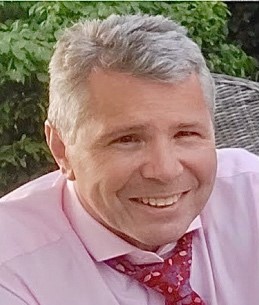|
IEEE ICMA 2024 Conference
Plenary Talk
3
Industrial Exoskeletons: Health, Safety and Productivity
in the Workplace of the Future
Prof. Darwin G Caldwell, FREng FIEEE MAE CEng
Founding Director
Italian Institute of Technology (IIT)
Vice President IEEE RAS (Robotics and Automation Society)
Director, Department of Advanced Robotic IIT
Via Morego 30, 16163 Genoa, Italy
Email: darwin.caldwell@iit.it

Abstract: In the 18th century Bernardino Ramazzini, in his treatise “De Morbis Artificum Diatriba” (Diseases of Workers), suggested methods to prevent injuries in over 50 work environments. Ensuring worker health and safety is now deeply embedded, yet the World Health Organization estimates over 1.7 billion people suffer from Work Related Musculo-Skeletal Diseases (WRMSD). This impacts not only workers in obvious areas such as heavy lifting (Manual Material Handling), but ranges from manufacturing, construction and logistics, to office and shop workers and even healthcare professionals. Every year >40% of workers suffer lower back or neck/shoulder pain, making WRMSD the leading cause of work-related health problems. This impacts: workers, employers, and society in general, due to: sickness absence, injuries and disability, increased costs, higher employee turnover, and lower productivity. These injuries can have a lifelong debilitating effect. The EU estimates 2% of GDP is lost due to WRMSDs.
This presentation will explore the background to WRMSDs, and the global development of industrial/occupational exoskeletons for manufacturing, transportation systems, construction, logistics, and healthcare. Subsequently, I will focus on exoskeletal and wearable technologies developed at IIT, exploring the factors (hardware, software, HRI, intent recognition etc.) influencing design and effective real-world operation and deployment. Finally, I shall consider the future need and potential of this critical technology.
Prof. Darwin G Caldwell is Founding Director of the Italian Institute of Technology (IIT) in Genoa Italy, and Director of the Dept. of Advanced Robotics (ADVR) at IIT. He has pioneered developments in compliant and variable impedance actuation, Soft and Human Friendly Robotics and the creation of 'softer', safer robots, that draw on developments in materials, mechanisms, sensing, actuation and software. These developments have been fundamental to advances in humanoids, quadrupeds, medical robotics and exoskeletons. Key robots developed by his team include: iCub, a child-sized humanoid robot; COMAN, a controllably compliant humanoid designed to safely interact with people and have more natural (loco)motion; WALK-MAN, a 1.85m tall, 120kg humanoid that competed in the DARPA Robotics Challenge; the HyQ series (HyQ, HyQ2Max, HyQ-Real) of high performance hydraulic quadrupedal robots; and PHOLUS/Centauro, a human-robot symbiotic system capable of robust locomotion and dexterous manipulation in rough terrain and harsh environments. In addition to his research in legged robots, Prof. Caldwell also works extensively to develop wearable and haptic systems including whole body exoskeletons such as the XoSoft, XoTrunk, XoShoulder and XoElbow and in surgical and rehabilitation robotics where his team have developed systems such as the CALM (Computer Aided Laser Microsurgery) systems, the Cathbot, Cathbot-Pro and SVEI (for catherization and tissue type detection) and the Arbot (Ankle rehabilitation robot).
Prof. Caldwell is or has been an Honorary professor at the Universities of Manchester, Sheffield, Bangor and King's College London in the UK, and Tianjin University and Soochow University in China. He has published over 750 papers, has over 25 patents and has received over 50 awards/nominations at international conferences and events. He is a Fellow of the Royal Academy of Engineering (FREng - British National Academy), the IEEE (FIEEE), a Member (Fellow) of the Academia Europaea, a Fellow of the Asia-Pacific Artificial Intelligence Assoc. (FAAIA) and a Chartered Engineer (CEng). He is Vice President of the IEEE RAS (Robotics and Automation Society).
|